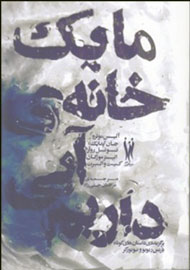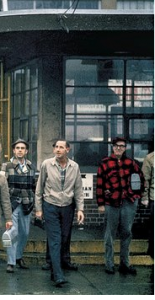The John Updike Society has received a $20,000 donation from the PECO Foundation, a charitable trust based in New York City, “to help support the John Updike Society’s project to preserve the Updike family house.”
H. Roemer McPhee, who is on the board, is a huge Updike fan—not just familiar with all the novels and short stories, but able to quote from them. This past summer he toured the house and Shillington-Plowville sites with his mother, Updike Society president James Plath, and John Updike Childhood Home curator Maria Mogford. And he saw firsthand the work that needed to be done.
Last year the PECO Foundation contributed $3000 but upped their donation this year to help with much-needed house repairs and restoration, which are expected to cost some $300,000.
The contribution looms even larger than that, because it’s the first major donation other than ones received from The Robert and Adele Schiff Family Foundation, whose generosity enabled the society to buy the house and begin the restoration. “It paves the way for other major donors to climb onboard and together create a literary landmark that can be appreciated for many generations to come,” Mogford said.
Mogford said that the exterior of the house has been painted this fall, and that work inside will begin again in the spring and continue throughout summer of 2014, in anticipation of being at least “presentable” for the Third Biennial John Updike Society Conference to be held the first week in October of 2014. That conference, like the first, will be hosted by Alvernia University.
 From the Iran Book News Agency comes the announcement that “‘Blue House’ House to Stories of Noted Writers” was recently published in Persian, a five-story collection featuring authors Alice Munro, John Updike, Alistair Morgan, and Kate Walbert.
From the Iran Book News Agency comes the announcement that “‘Blue House’ House to Stories of Noted Writers” was recently published in Persian, a five-story collection featuring authors Alice Munro, John Updike, Alistair Morgan, and Kate Walbert.


